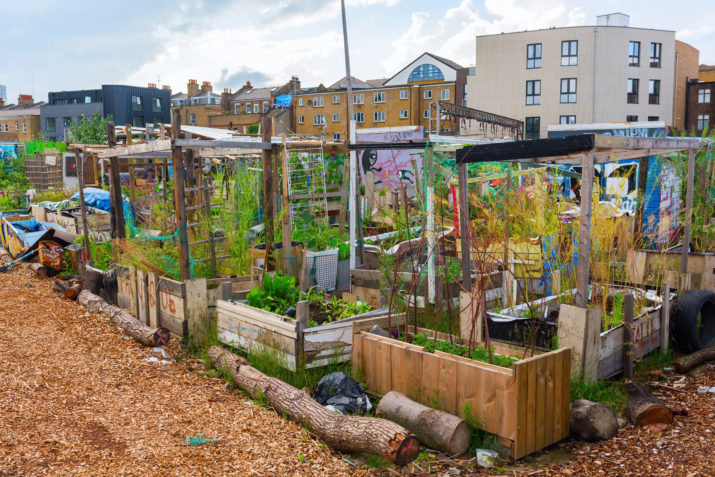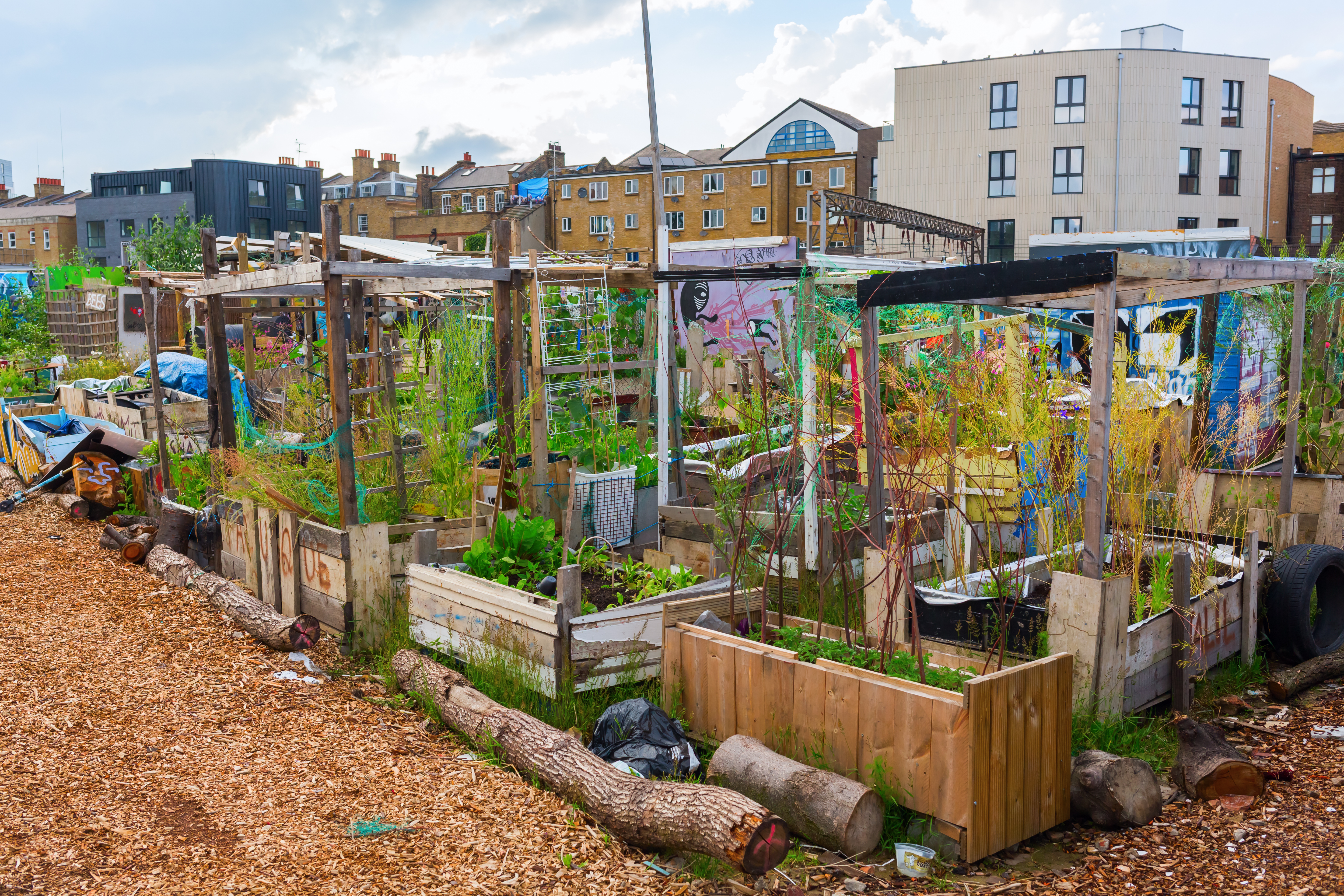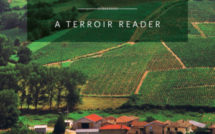

This is part of our special feature on Food, Food Systems, and Agriculture.
My contribution to this special feature on food cultures, food systems and agriculture in Europe builds upon my ongoing project Food citizens? Collective food procurement in European cities: solidarity and diversity, skills and scale. Looking at current literature on food and citizenship, with this project I have highlighted some of the contradictions and problematic aspects of notions of (active) citizenship, civic duty and social solidarity, as they increasingly become associated with alternative food networks in institutionally-sponsored discourse. I begin by introducing a definition of “collective food procurement,” which might help reframing the issue of European food systems not only from an agricultural and logistic point of view, but also from a social point of view that goes beyond individual preferences and tastes. This understanding of food provisioning adds a “meso” level to macro (logistics and trends) and micro (individual preferences and tastes) analyses of food systems. In sum, food procurement in all its facets highlights how food is a mediator of relations within social networks, not only a commodity or nutrient.
Collective food procurement
Collective food procurement defines the production, distribution, and consumption of food with a participatory dimension: for example community gardens, but also new entrepreneurship based on urban agriculture, as well as broader projects governing food markets or allotments at municipal level. We can categorize this phenomenon at different levels: foraging (for example allotments, e.g. Venn et al. 2014), short chains (for example city farms, see van der Schans 2013), and local governance (for example food councils, Welsh and Mac Rae 1998). In sum, collective food procurement defines social participation in production, distribution, and consumption of food at multiple levels.
As potential sites for observation, European cities play an important role in the emergence of food procurement networks: diverse forms of collective food procurement can be found in multiple cities in Europe, which lie in regions with distinctive histories in relevant macro-areas such as Western, Southern, and post-socialist Europe. Many share a post-industrial condition, or demographic challenges connected with outmigration, immigration, or ageing. These rapid transformations challenge European urbanites to rethink what it means to participate – to be a citizen. My thesis is that looking at collective food procurement ethnographically unpacks the notion of citizenship. In other words, by looking at how diversely people procure food together we can appreciate how they craft, practice and interpret their own styles of citizenship – in the broad sense of participation and belonging in a community.
Does the emergence of collective food procurement indicate a new form of “food citizenship” or “food democracy” (as advocated in some of the literature on alternative food networks, see Renting et al. 2012), or could these networks and practices reproduce hegemonic notions of participation and belonging? In other words, what are the underlying imaginaries and societal expectations of solidarity and of citizenship? Does food still tell us, even in this relatively new emergence, how in each culture one is expected to participate and belong (Mol 2013)?
This is a relevant and timely question, since urgent transitions to sustainable lifestyles, including more sustainable food systems, are by and large being imagined and communicated as a question of finding a suitable technology fix, with little notice of the relevance of culture to food procurement, and of the diversity of cultures even within Europe. The challenge is to study if and how styles of procurement articulate and are in turn co-produced by styles of participation. This critical exercise puts a normative notion of “ethical citizenship” under a critical lens.
Redefining food in the framework of citizenship
According to current scholarship, citizenship is a conceptual framework that underlies the cultural dimensions of diverse forms of social and economic experimentation with collective food procurement. For example, Dubuisson-Quellier et al. (2011) use citizenship as a conceptual framework to analyze consumer mobilization: “consumption is the means that alternative food movements use in their endeavor to get citizens to be more active in the negotiation of economic regulations” (305). Consumers mobilize in many ways of course: from engaging in boycott campaigns to “buycotting” (namely buying preferentially) fair trade goods. The conceptual tool of citizenship is used because of the “idea to enable consumers to associate products with the issues pertaining to the place and conditions of their production” (305). The principle of consumer responsibility is here merged with old and new citizen’s duties: nowadays these are felt as collective environmental issues and the duty of building (more) sustainable food systems, while previously the same sentiments of responsibility could serve the nation state’s war effort, for example in so-called “victory gardens” (Lawson 2005).
Provisioning activism has been defined as a form of “exercise in citizenship:” a sort of gym where one is to be trained in acquiring information, changing one’s lifestyle, and asking for each other’s help in figuring out how (Forno et al 2015). This way, consumer self-education “aims to equip consumers with new references in the marketplace; as consumers’ leagues used to do” (307). However, provisioning activists may follow very diverse routes. For example, Italian gasistas (namely members of “Solidarity Purchase Groups” or “Solidarity Economy Networks,” see Grasseni 2013) regret that direct democratic decision-making about how to produce, distribute, and certify food fades away as the scale of operations increases, as happened with Fair Trade (see Lyons 2011). While initially Fair Trade shops cultivated direct relationships with producer cooperatives in the global South, the increasing success and globalization of the Fair Trade movement itself has meant that, as brokers step in, consumers “participate” only by buying, and do not have a real say “in the construction of the commercial relations preceding their purchases” (Dubuisson-Quellier et al. 2011 p. 311).
How consumers should or could act as “citizens,” then, is not a straightforward affair. According to Micheletti and Stolle (2012), citizens worldwide are negotiating their consumption lifestyles through “political consumption,” so that their provisioning practices may become (more) sustainable and fair, especially to future generations. “Sustainable Citizenship” is the normative categorization they use to identify this dynamic. In this case, “sustainable citizenship” is both an analytical and a descriptive term for the new responsibilities, expectations and dilemmas of individuals and institutions in the Anthropocene. According to Micheletti and Stolle, sustainable citizenship “includes responsibilities for economic, environmental and equitable development;” it “expands the framework of citizenship and challenges conventional views of citizenship” in a temporal, spatial, and material way. Unlike classic theories of citizenship hinging on participation in a citizenry with its rights and duties, the spatial dimension of sustainable citizenship “addresses responsibilities worldwide, not just within one’s country” or nation-state (88); its temporal dimension “addresses concerns about past and current injustices and their effects on the future” (88); its material dimension “emphasizes responsibility to nature and animals” (88) and the importance of production and consumption in living up to that responsibility. In particular, Micheletti and Stolle identify “individuals” and “institutions” as the actors (consumers, producers, civic groups, corporations, governments, etc.) who should be bound by “sustainable citizenship.” However, by establishing whether certain (types of) individuals or institutions behave according to sustainable citizenship or not, the authors turn a descriptive category into a prescriptive one. In the same breath, they leave out from their field of vision all those groups or loose forms of networks and associations that cannot be categorized as either individuals (or a generic sum of them, such as the “vegetarians”) or institutions (including corporations and NGOs, such as Fair Trade International). Indeed, it is to be agreed with the authors that “sustainable citizenship has the potential to challenge and change the underlying structural causes that have led to global environmental and social justice problems… whether it does this is, however, is a question in need of an empirical answer” (2012: 91).
My point is that such empirical answers cannot be found by “formulating indicators of the presence of sustainable citizenship” (88) and then checking if specific institutions qualify for a certain definition of “sustainable citizenship.” The answer must be gleaned by a much broader abductive conceptual operation. In Charles Peirce’s philosophy, abduction, as opposed to deduction and induction, “stretches across the same cognitive elements as do deduction and induction, but in a different order, and with different effects. Abduction produces ‘cases’ – which are at once causal and situational arrangements of facts.” When we connect facts to rules by abduction we do so only conjecturally (Saunders 2007: 154). Abduction is not deduction: it does not mean defining and then seeking instantiations of one sociocultural phenomenon. Abduction interrogates each instantiation, to see if it tells us something more about our own premises (by which we sampled it in the first place). It is a thought process that allows for growth and temporality.
“Food citizens” are called to “develop a new terrain of social agency and political action,” developing a “moral selfhood” that expresses “human agency based on knowledge and recognition,” which “requires new kinds of food labeling practices” (De Tavernier 2012, p. 895). However, currently proposed definitions of “food citizens” include their awareness and engagement not only with food quality but also about the implications of global food systems in terms of inequality and environmental inequity. In short, food citizens should strive “to participate in the governance of food affairs” (Lozano-Cabeno and Gomez-Benito 2017). In the light of this strongly normative definition, few provisioning activists would qualify as “food citizens.”
Normative frameworks do not clarify what we should know about the sociocultural phenomena that allow diverse styles and practices of collective food procurement to emerge. Proceeding by indicators will not necessarily help, since definition-driven models are prescriptive rather than heuristic, top-down rather than bottom-up, deductive rather than abductive. The main limitation of a normative approach is that it postulates that an author-driven conceptual framework works as a descriptive representation of what is actually going on the world. This is a bold move, which sometimes leads scholars to impose specific categories on sociocultural actors that would not recognize themselves in them. It reifies what should be an attempt first at describing, then at categorizing a palette of existing sociocultural phenomena. It even moves on to say what “sustainable citizenship” (or “ecological citizenship” or “corporate citizenship”) should do in the world, as if by naming them, we were conjuring up a collective actor.
Others have a more empirical approach to how to solve global food problems at a local level. However, these more pragmatic, sometimes policy-oriented approaches may simply assume that citizens are by definition consumers, who can exercise their choice to be not just consumers but also “food-citizens.” The expectation that anyone can express a consistent preference for local foods for example (Wilkins 2005) begs the question of food justice, namely of the lack of access – for the majority of the world’s population, even in so-called developed countries – to healthy and quality food that is not structurally based on the exploitation of others. While American scholarship has posed this issue in terms of food justice (Alkon and Agyeman 2011, Gottlieb and Anupama 2010), European scholars have problematized the structural elitism of certain ethical consumption (Carrier and Luetchford 2012).
Anthropological scholarship, by converse, is less interested in formulating definitions and more inclined to observe and voice processes of “self-making” (Ong, 1996: 737) from the bottom up. This means recognizing both limits and potentials of citizens’ and consumers’ actual practices and narratives. There is a plethora of ways of engaging with food that does include the assumption of specific obligations in terms of environmental, economic and social sustainability of (local) food systems: for example
- Urban foragers produce food for self-consumption in community gardens and allotments, or gather fruit and vegetables from open access grounds to share, can, pickle or preserve within the group. Many organize themselves through Facebook or social apps (such as the German “Mundraub” social network), as do some urban “gleaners” or “freegans”, who recuperate discarded foods from markets and shops in teams, for redistribution, festive cooking or gifting (Delgado 2003).
- Short food chains include direct supply from producers, either informal or organized as in the case of the Solidarity Purchase Groups above, but also through “food hubs” (online or not) facilitating direct transactions. Farm-driven Community-Supported Agriculture (CSA) developed independently in the USA (White 2013), Japan (Kondoh 2015) and France (as Associations pour le Maintien d’une Agriculture Paysanne, Lamine 2005), providing a transnational model for committing to buying from smallholders.
- Projects of local food governance by public institutions or private/public/NGO partnerships, coordinate political and cultural action on food procurement, following examples such as that of Toronto’s Local Food Policy Council (Scherb et al. 2012). Actions may include public procurement (in schools or hospitals), land zoning, or support for urban agriculture, but also (re)skilling and educational projects in urban food gardens, promoting social inclusion, public health, or local entrepreneurship.
Collective food procurement adds a sociocultural dimension of reflexivity and sometimes social contestation to the elusively simple act of food provisioning, beyond the minimal goal of food safety and food security. Through food engagements, Europeans use and transform their “common-sense knowledge of the link between taste, place and quality” (Trubek 2009: 211). Against the “ontonormal” assumption that “citizens-consumers” act individually in the market according to a simple equation of quality/price (Mol 2013), collective food procurement can constitute spaces of “transgression” (Goodman & Sage 2014) and of “counter-epistemologies” (Grasseni 2013) re-signifying existing (food) relations. In this sense, food procurement can enable forms of “lifestyle politics” (de Moor 2016).
However, we should ask if these societal actors claim to be “food citizens,” and why and through which styles of collective behavior they intend to achieve which specific goals, and with which priorities? Ethnographic analysis of extended case studies can supplement a necessary awareness of the historical depth and societal breadth of the analytical categories utilized in each and every case. For example, the category of “solidarity” might evoke contradictory meanings and political scenarios in different parts of Europe in which it has played different historical and societal roles. Let’s take for example Gdansk in Poland, the seat of the “Solidarity” workers union and then government party, vis-à-vis Rotterdam, where being part of a ‘participation society’ is currently the neoliberal mantra of a national government that withdraws from welfare expenditures, and hopes to induce more “responsible” and “caring” behavior among its citizens (King Willem Alexander, 2013). In Italy then “Solidarity economy” has come to stand for a specific movement of economic activism that purposefully eschews from political representation (Grasseni 2014).
The fact is that how we procure and share food (including perhaps the conviction that we should not devote too much thought to it) is central to cultural understandings of specific styles of societal participation. It pertains to pervasive and often tacit social and economic self-fashioning styles. It is when we compare them across different contexts that they etch out of their commonsensical everyday banality and acquire the higher status of political and civic values. This is not only true of food. But it is because of these important underlying diversities and dynamics that collective food procurement needs to be analyzed and compared within and across specific socio-political contexts. In other words, phenomena that we could categorize under, for example “food-sharing,” take on completely different salience whether they are practiced as part of a right-and-duty to work, or of neoliberal “participation,” or of stigmatizing charity. Even within a relatively small place such as the European Union, distinctive regions and histories share a post-industrial condition that challenges them to rethink what it means to “participate” in a society: whether for demographic, ethnic, political or economic reasons.
Conclusion: comparing by context
On the basis of ethnographic observation, one can unpack similarities and differences, limits and potentials of collective food procurement in comparable regions, to analyze how it aims to solve global food problems at a local level, by engaging specific food procurement practices and their positioning vis-à-vis the issues of sustainability. A comparison by contexts (Messina 2012, Grasseni et al 2013) can deliver a critique of “technology-fix” types of models for sustainable urban food systems, by unveiling the impossibility of developing such models in general. We need context-sensitive and nuanced European city portraits instead, where food procurement and active citizenship do come into conversation but are grounded in context and critical reflexivity.
Collective food procurement provides an empirical lens, that by looking through one can analyze how diversely people procure food together. Every city hosts multiple instantiations of collective food procurement: each type of network develops in different cities, and simultaneously interacts with the other network-types in its own context. The team of researchers active on the Food Citizens? project are busy formulating relevant questions, which will find answers in long-term fieldwork, namely prolonged participant observation: Which skills do people involved in collective food procurement acquire or lack? How do they operate across and within diverse communities? Do their networks scale “up” or “ou,t” and how? How do they interpret and articulate “solidarity?” Comparing by context means delivering cultural understandings of the cultural dimensions that characterize collective food procurement at different levels in different sociohistorical sites, navigating “thick descriptions” of what being a “food citizen” might actually be like. Vice versa having multiple narratives of that experience enriches our very conceptual understanding of (food) citizenship as a process of cultural production.
Cristina Grasseni is Chair of Anthropology and Scientific Director of the Institute of Cultural Anthropology and Development Sociology at the University of Leiden (The Netherlands) and was Radcliffe Fellow and Film Study Center Fellow at Harvard University (2011-12). She has published The Heritage Arena, Reinventing Cheese in the Italian Alps (2017), Beyond Alternative Food Networks. Italy’s Solidarity Purchase Groups (2013), Developing Skill, Developing Vision. Practices of Locality in an Alpine Community (2009) and Skilled Visions. Between Apprenticeship and standards (2007).
Photo: London, UK – June 17, 2016: Nomadic Community Gardens in Shoreditch | Shutterstock
References:
Alkon, A. and Agyeman, J. 2011. Cultivating Food Justice: Race, Class, and Sustainability. Cambridge, MA: MIT Press.
Carrier, J., Luetchford, P. (eds.) 2012. Ethical Consumption: Social Value and Economic Practice. Oxford: Berghahn Books.
De Moor, J, 2016. ‘Lifestyle politics and the concept of political participation’, Acta Politica, 52(2): 179-197.
De Tavernier, J. 2012. ‘Food citizenship: is there a duty for responsible consumption?’, Journal of Agriculture and Environmental Ethics 25: 895-907.
Delgado, M. 2003. ‘Recolectores urbanos’, in P. Virreina (ed.) Alehop! Dissenys, enginys i remei, Barcelona: Electa, pp. 118–122.
Dubuisson-Quellier, S., Lamine, C. and Le Velly, R. 2011. ‘Citizenship and consumption: mobilisation in alternative food systems in France’, Sociologia Ruralis 51(3): 304-323.
Forno, F., Grasseni, C. and Signori, S. 2015. “Italy’s Solidarity Purchase Groups as ‘Citizenship Labs’”. In E. Huddart Kennedy, M. Cohen & N. Krogman (Eds.), Putting Sustainability into Practice – Applications and Advances in Research on Sustainable Consumption. Edward Elgar, pp. 67-90.
Goodman, M. and Sage, C. (eds.) 2014. Food Transgressions: Making Sense of Contemporary Food Politics. London: Ashgate.
Gottlieb R. and Anupama, J. (2010), Food Justice, Cambridge, MA: MIT Press.
Grasseni, C. 2013. Beyond Alternative Food Networks: Italy’s Solidarity Purchase Groups. London & NYC: Bloomsbury.
Grasseni, C., Forno, F. and Signori, S. 2013. “Beyond Alternative Food Networks: An Agenda for Comparative Analysis of Italy’s Solidarity Purchase Groups and Districts of Solidarity Economy vis-à-vis US Community Economies”. UNRISD conference Potentials and Limits of Social and Solidarity Economies, Geneva, 6-8 May 2013.
Kondoh, K. 2015. ‘The alternative food movement in Japan: Challenges, limits, and resilience of the teikei system’, Agriculture and Human Values 32(1): 143–153.
Lamine, C. 2005. ‘Settling the shared uncertainties: local partnerships between producers and consumers’, Sociologia Ruralis 45(4): 324-345.
Lawson, L.J. 2005. City bountiful: A century of community gardening in America. Berkeley: University of California Press.
Lyons, S. 2011. Coffee and Community: Maya Farmers and Fair Trade Markets. Boulder: University Press of Colorado.
Lozano-Cabedo, C. and Gomez-Benito, C. 2017. ‘A theoretical model of food citizenship for the analysis of social praxis’, Journal of Agricultural and Environmental Ethics 30(1): 1-22.
Messina, P. 2012. Regolazione politica dello sviluppo locale. Veneto ed Emilia Romagna a confronto. Torino: Utet. Second Edition.
Micheletti, M. and Stolle, S. 2012. ‘Sustainable citizenship and the new politics of consumption’, The Annals of the American Academy of Political and Social Science 644: 88-120.
Mol. A. 2013. ‘Mind your plate! The Ontonorms of Dutch dieting’, Social Studies of Science, 43(3): 379-396.
Ong, A. 1996. ‘Citizenship as Subject Making: New Immigrants Negotiate Racial and Ethnic Boundaries’, Current Anthropology 37(5): 737-62.
Renting, H., Schermer, M. and Rossi, A. 2012 ‘Building Food Democracy: Exploring Civic Food Networks and Newly Emerging Forms of Food Citizenship’, International Journal of Agriculture and Food 19(3): 289-307.
Saunders, B. 2007. ‘CT Suite. Visual Apprenticeship in the Age of the Mechanical Viewbox’ in C. Grasseni (ed.) Skilled Visions, Oxford: Berghahn Books, pp. 145-166.
Scherb, A., Palmer, A. Frattaroli, S. Pollack, K. 2012. ‘Exploring Food System Policy: A Survey of Food Policy Councils in the United States’, Journal of Agriculture, Food Systems, and Community Development 2(4): 3-14.
Trubek, A. 2009. The Taste of Place. A Cultural Journey into Terroir. Berkeley: University of California Press.
van der Schans, J.W. 2013. Stadsboeren in Nederland: professionalisering van de stadsgerichte landbouw. Rotterdam: Van Bergen Kolpa Architecten.
Veen, E., Derkzen, P. and Visser, A.J. 2014. ‘Shopping versus growing: food acquisition habits of Dutch urban gardeners’, Food and Foodways, 22(4):268-299.
Welsh, J. and MacRae, R. 1998. ‘Food Citizenship and Community Food Security: Lessons from Toronto, Canada’, Canadian Journal of Development Studies, 19(4):237-255.
White, T. 2013. ‘Growing Diverse Economies Through Community Supported agriculture’. Northeastern Geographer 5: 1-24.
Wilkins, J. 2005. ‘Eating Right Here: moving from consumer to food citizen, Agriculture and Human Values, 22(3): 269-273.
The project Food citizens? Collective food procurement in European cities: solidarity and diversity, skills and scale receives funding from the European Research Council (ERC) under the European Union’s Horizon 2020 research and innovation programme (Grant agreement No. 724151).
Published on September 5, 2018.




